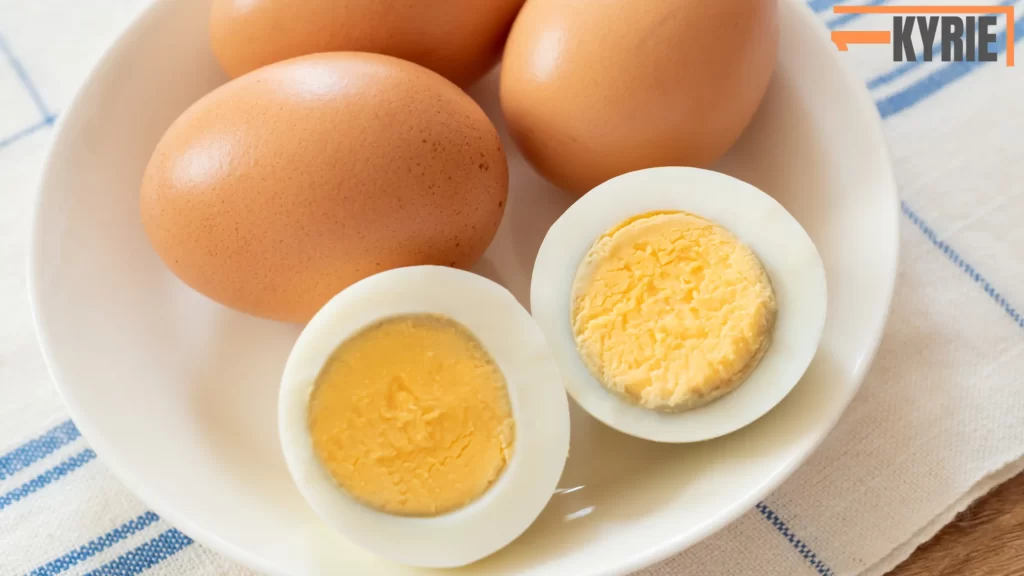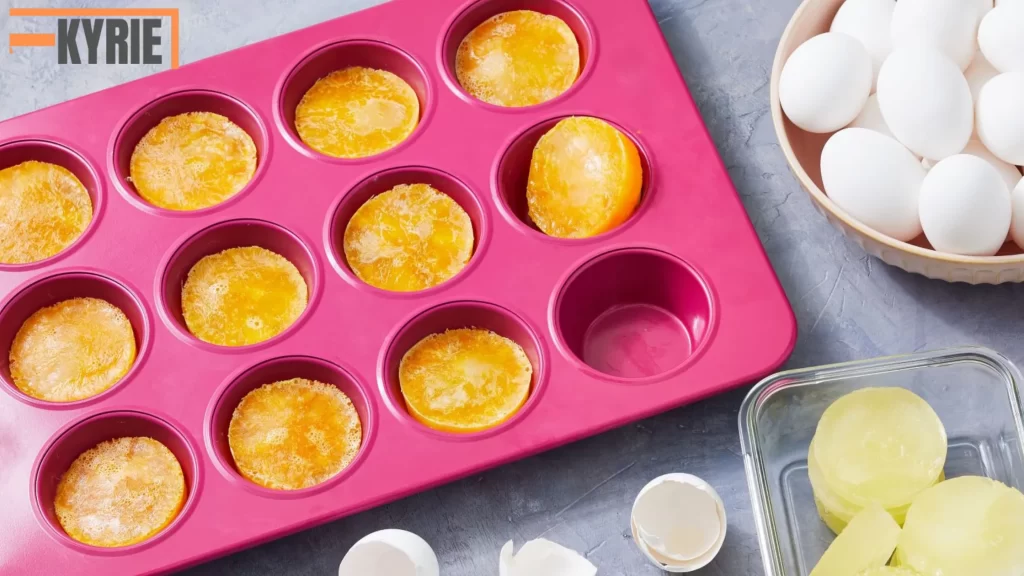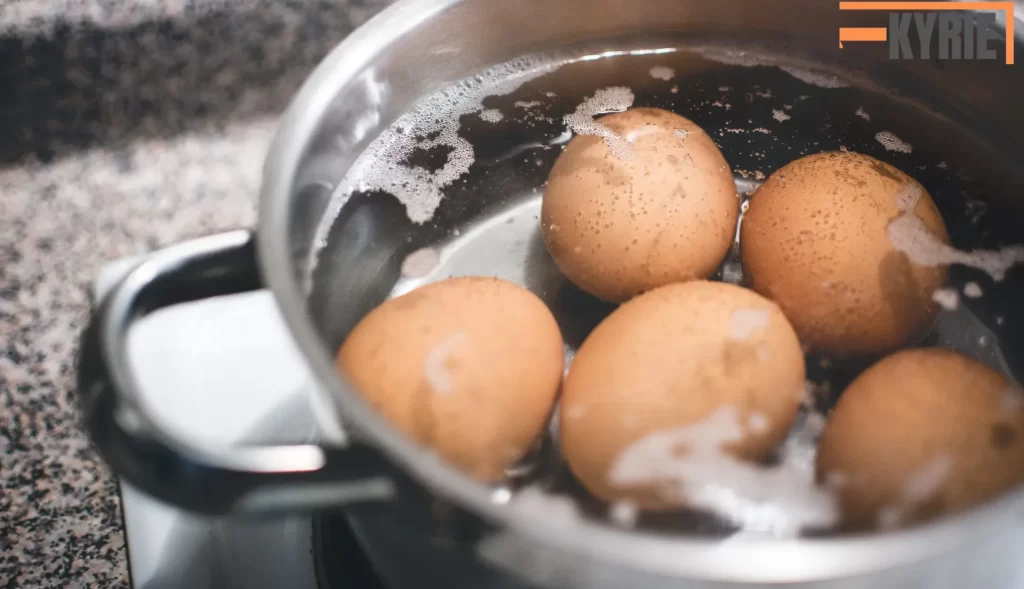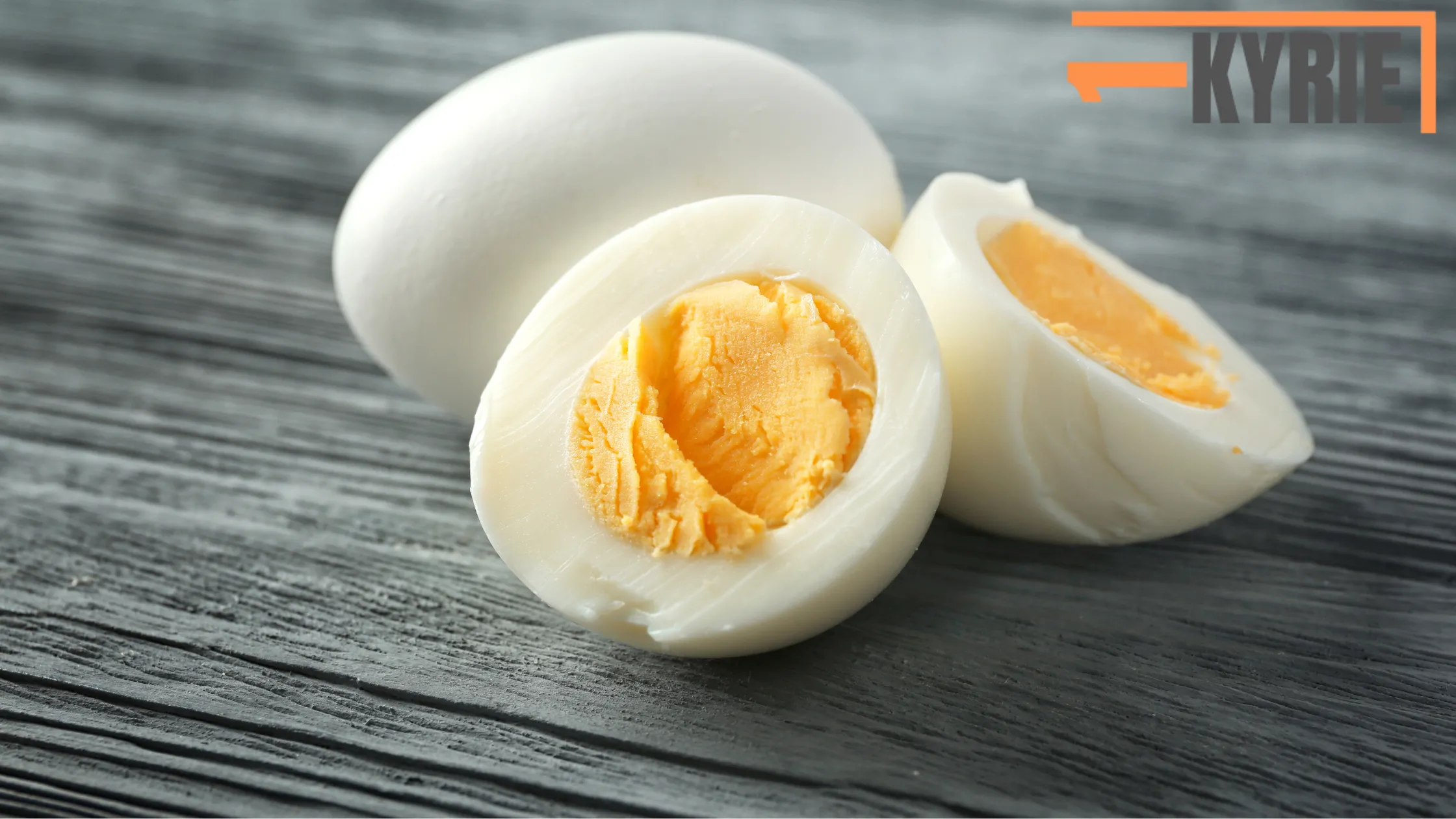Table of Contents
If you’re wondering, “Can you freeze boiled eggs?” the answer is yes! Freezing boiled eggs is an excellent way to save time and reduce waste, especially if you have several eggs left over or want to meal-prep breakfasts. Freezing eggs is a great way to keep chickens’ eggs fresh, even when you can’t use them all immediately. This guide will help you understand how to freeze eggs, avoid common mistakes, and ensure they stay tasty and nutritious.
Why Freeze Boiled Eggs?

Boiled eggs are a popular snack, breakfast item, and recipe ingredient. They’re packed with protein, vitamins, and minerals, making them a nutritious addition to any meal. But what happens when you’ve boiled more than you can eat in one sitting? Or maybe you’re meal-prepping and want to ensure your ample egg supply lasts longer? Freezing boiled eggs is a perfect solution.
Freezing eggs helps preserve them for future use, which is ideal for people who love meal-prep breakfasts or want to avoid food waste. It’s essential to understand, though, that the texture of frozen eggs, especially the whites, can change when frozen. Using the proper techniques is critical to maintaining quality.
Also Read: Can You Recycle Styrofoam? The Surprising Truth Revealed!
Can You Freeze Boiled Eggs?

Yes, you can freeze eggs, including boiled eggs, but not all parts of the egg freeze equally well. While boiled egg yolks freeze well and maintain their texture after thawing, boiled egg whites tend to become rubbery and watery. For this reason, most people prefer to freeze only the yolks when storing hard-boiled eggs for long periods.
How to Freeze Eggs: Step-by-Step Guide
Here’s a detailed process for freezing your eggs:
- Boil the Eggs Properly
- Start by boiling eggs as you usually would. Hard-boiled eggs are ideal for freezing. Boil several eggs at once to save time and meal-prep breakfasts in bulk.
- Cool the Eggs Completely
- Once your eggs are boiled, could you place them in cold water to cool down? Cooling eggs before freezing prevents condensation from forming inside the freezer container, which can lead to freezer burn.
- Peel the Eggs
- After cooling, peel your eggs. Peeling before freezing makes the frozen eggs easier to use later. If you plan to freeze eggs often, peel them immediately after cooling.
- Separate Yolks from Whites
- Since freezing boiled egg whites can produce an unappetizing, rubbery texture, it’s best to freeze only the yolks. Separate the yolks from the whites by cutting the boiled eggs in half.
- Freeze Egg Yolks
- Place the yolks in a single layer on a baking sheet or muffin tin, freeze them for an hour, then transfer them to freezer-friendly containers or freezer bags. Always label your freezer container with the date to track how long they’ve been frozen.
- Store Properly
- Store the frozen egg yolks in your freezer for up to three months. Remove as much air as possible from the freezer container or bag to keep the yolks fresh.
Also Read: How Much Does a Bale of Hay Weigh? The Astonishing Answer
How Freezing Affects Egg Texture

Freezing eggs, especially boiled whites, affect their texture. After freezing, egg whites become rubbery and watery, making them less enjoyable. For this reason, most people freeze only yolks. On the other hand, frozen egg yolks maintain their flavor and texture, making them perfect for use in recipes like egg salad or deviled eggs.
How to Defrost Frozen Eggs
Defrosting frozen eggs requires care to maintain their quality:
- Thaw in the Refrigerator
- Move your frozen eggs to the refrigerator from yesterday’s deep freeze or freezer. Let them thaw slowly overnight or for several hours. This slow thawing process ensures the frozen egg block retains its texture.
- Avoid Microwave Thawing
- Although it’s tempting to defrost eggs in the microwave, this method can overcook the yolks and make them dry. Stick to the refrigerator for defrosting.
- Use Immediately
- Once thawed, use your frozen eggs right away in your favorite recipe. Never refreeze thawed eggs, as refreezing can affect both taste and texture.
Best Ways to Use Frozen Eggs
Once your frozen eggs are thawed, they are used in many ways. Here are some tasty ideas:
- Egg Salad
- Thawed yolks are perfect for egg salad. Mix mashed yolks with mayonnaise, mustard, and seasonings for a quick meal.
- Deviled Eggs
- Thawed yolks work wonderfully in deviled eggs. Mix them with mayonnaise and mustard for a classic treat.
- Add to Breakfasts
- Add thawed yolks to breakfast bowls for an extra protein punch. Combine them with vegetables, meats, and grains.
- Topping for Soups
- Crumbled frozen eggs can add richness to soups, blending well with broth for a creamy texture.
- Freeze in Muffin Tins
- Another great idea is to freeze scrambled, pre-mixed eggs in muffin tins or pans. These frozen eggs can be added directly to breakfasts like pancakes or muffins for easy meal prep.
Mistakes to Avoid When Freezing Boiled Eggs
Even though freezing eggs is straightforward, here are some mistakes to avoid:
- Freezing Whole Eggs
- Freezing whole eggs, including whites, results in a poor texture. Stick to freezing yolks.
- Not Cooling Eggs
- Always cool your eggs before freezing them to avoid moisture buildup in your freezer.
- Using the Microwave to Thaw
- Avoid microwaving eggs to thaw them, which can lead to overcooked yolks.
- Not Labeling Containers
- Label your freezer container with the date to track how long the eggs have been frozen.
Can You Freeze Other Types of Eggs?
In addition to freezing boiled eggs, you can also freeze raw eggs and scrambled eggs:
- Freezing Raw Eggs
- Crack open raw eggs, pour them into freezer containers or ice cube trays, and freeze. Freezing raw eggs helps preserve their freshness. Local eggs or pre-mixed eggs can also be frozen.
- Freezing Scrambled Eggs
- Scrambled eggs freeze well. Cook them as usual, let them cool, and freeze them in muffin tins or pans for easy use later.
Also Read: Can You Freeze Eggs? | Incredible Egg
How Long Can Frozen Eggs Last?
Frozen eggs, especially yolks, can last up to three months. To maintain quality, they should be used within this time frame. Frozen egg blocks from muffin tins can be added directly to recipes.

